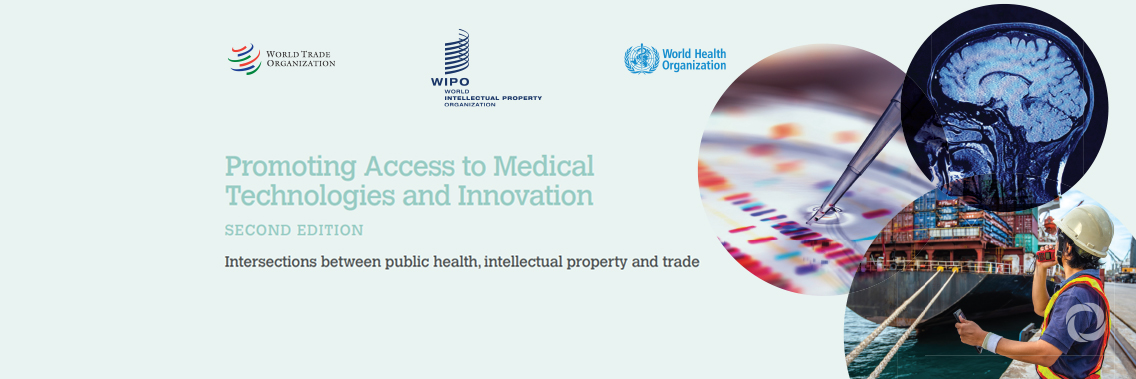The Directors-General of the World Health Organization (WHO), the World Intellectual Property Organization (WIPO) and the WTO presented a new edition of the Trilateral Study on Access to Medical Technologies and Innovation.
Building on the first edition launched in 2013, the publication seeks to strengthen the understanding of the interplay between the distinct policy domains of health, trade, and intellectual property (IP), and how they affect innovation and access to medical technologies, such as medicines, vaccines, and medical devices. The second edition provides an improved, evidence-based foundation for policy debate and informed decision-making at a critical time for global health.
WTO Director-General Roberto Azevêdo emphasized the need for policy coherence and collaboration. Recognizing the close link between the health, trade and IP dimensions, he noted that “coherent approaches to vital medical technologies that bring together the key determinants for innovation as well as access” were required and needed “to span the entire process, from research to development to manufacturing and delivery to those in need”.
DG Azevêdo said: “Close collaboration between our three specialized agencies has yielded important practical benefits. Similar benefits could be replicated at the domestic level by mirroring this integrated approach.” He expressed the hope “that the revised material will support policy debate and help build governments’ capacity to deal with health challenges”.
DG Azevêdo recalled that “it is only through joint efforts at the global level that we can achieve our shared public health goals” and that “cooperation is also necessary to prepare for future health crises”, a goal to which the study contributes.
Dr. Tedros Adhanom Ghebreyesus, WHO Director-General, said in his video message: “Barriers to access must be removed, including unaffordable prices, intellectual property barriers, unjustified tariffs and challenges in ensuring effective and efficient regulatory review.”
“We have seen over the past months how countries have mobilized unprecedented investments in collaborative, not-for-profit research and development. The COVID-19 pandemic is showing what we can do when we come together to face a shared global health threat. That’s the kind of collaboration that can save lives and transform the health of billions of people globally,” he added.
The study records numerous significant developments since 2013 when the first edition was launched. Among the new topics covered are antimicrobial resistance and cutting-edge health technologies. The revised edition provides updated data on health, innovation trends in the pharmaceutical sector, and trade and tariffs regarding medical products. It also includes an updated overview of access to medical technologies globally and key provisions in regional trade agreements. In addition, it takes account of developments in IP legislation and jurisprudence.
A COVID-19 section at the start of the publication provides a factual overview of the developments and measures taken to address this extraordinary public health crisis, which began after the work on the second edition of the study had been completed. The section guides the reader to parts of the study that are of direct relevance to the issues that have been raised during the pandemic.
Read the full report: Promoting Access to Medical Technologies and Innovation.
Original source: WTO
Published on 29 July 2020

